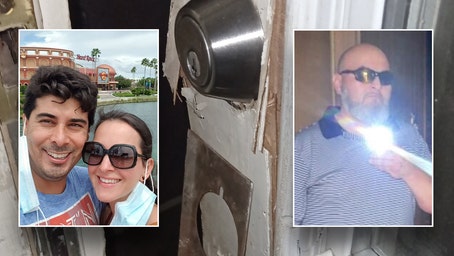A group of Boston activists is calling for White churches to pay $15 billion in reparations to the city's Black community, a move that has been met with criticism from some Chicago pastors.
Boston activists are pushing for $15 billion in reparations from "White churches" to address historical injustices against the Black community. However, the proposal has drawn criticism from some religious leaders, including South Side Chicago pastor Corey Brooks, who called it "absurd" and accused activists of "playing on people's shame and guilt."
The Boston activists' demand comes as the issue of reparations gains traction nationwide. Chicago Mayor Brandon Johnson recently announced the creation of a reparations task force charged with developing a framework for addressing historical injustices against Black people. The task force will explore the possibility of reparations in various forms, including housing, education, jobs, and criminal justice reforms.

Boston Activists Push for $15 Billion in Reparations, Chicago Pastor Calls It 'Absurd'
"Reparations will be an investment in our neighborhoods and our people," Johnson said during a Juneteenth celebration. "It will unlock the doors of prosperity to fully flow through the neighborhoods that have been disinvested in for decades...we must never forget our goal to make sure reparations become a reality for Black residents of this city."
The Chicago reparations initiative is part of a broader movement seeking to address the legacy of slavery and systemic racism in the United States. Advocates argue that reparations are necessary to compensate for the centuries of free labor extracted from enslaved Africans and the economic and social marginalization that Black communities continue to face today.

Boston Activists Push for $15 Billion in Reparations, Chicago Pastor Calls It 'Absurd'
However, some critics argue that reparations are impractical, divisive, and unfair. They question the feasibility of determining eligibility for reparations and the potential for resentments and conflicts that could arise from such a program.
"It's too divisive, it's going to divide us even more," said Alderman Nick Sposato, a critic of Johnson's reparations plan. "I don't know what the fairness about it would be. Maybe the report will say it's unnecessary, but I highly doubt that."

Boston Activists Push for $15 Billion in Reparations, Chicago Pastor Calls It 'Absurd'
Despite the criticisms, the reparations movement continues to gain support from activists, politicians, and a growing number of Americans who recognize the need to address the systemic injustices that have plagued Black communities for centuries.
In Boston, the activists' demand for reparations has targeted "White churches," which they allege have benefited from the exploitation of Black people through slavery and segregation. The activists argue that these churches have a moral and financial obligation to make amends for their past complicity in racism.

Boston Activists Push for $15 Billion in Reparations, Chicago Pastor Calls It 'Absurd'
Pastor Brooks, however, rejected the notion that White churches should be solely responsible for reparations. He argued that reparations should be a collective effort involving all Americans, regardless of their race or religion.
"White churches didn't enslave Black people," Brooks said. "It was a national sin, and all of us need to be involved in the solution."
The debate over reparations is complex and raises important questions about the nature of justice, responsibility, and racial reconciliation. As the movement continues to evolve, it will likely face further challenges and controversies, but it also has the potential to contribute to a more just and equitable society for all Americans.










